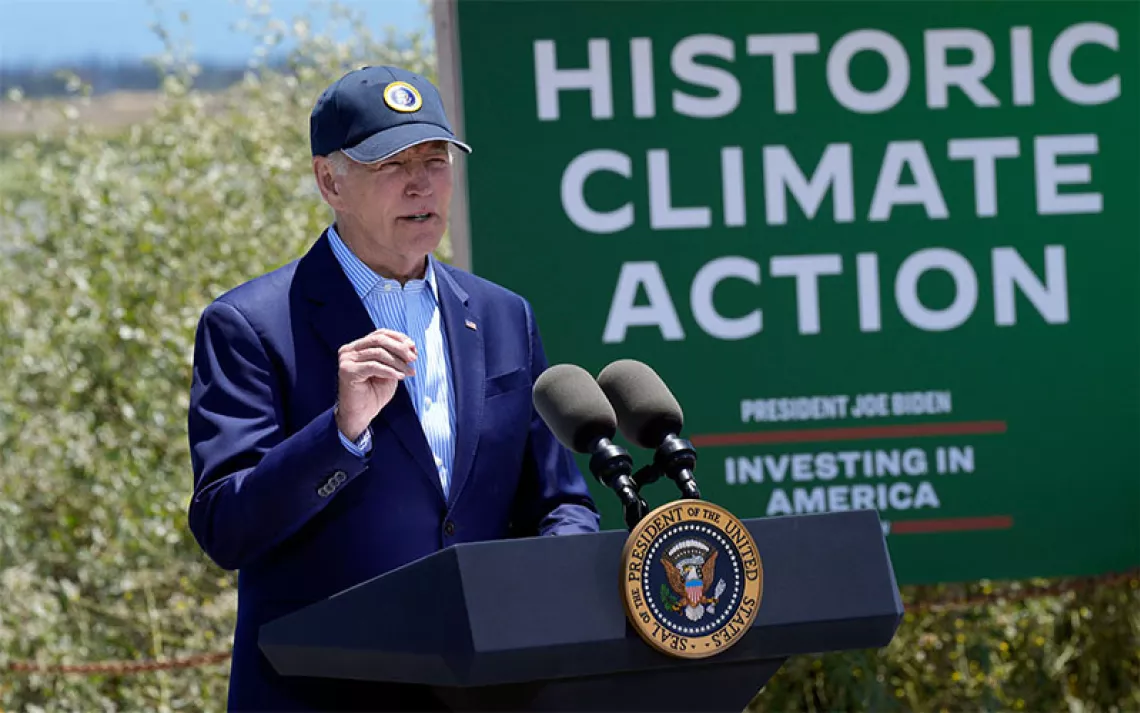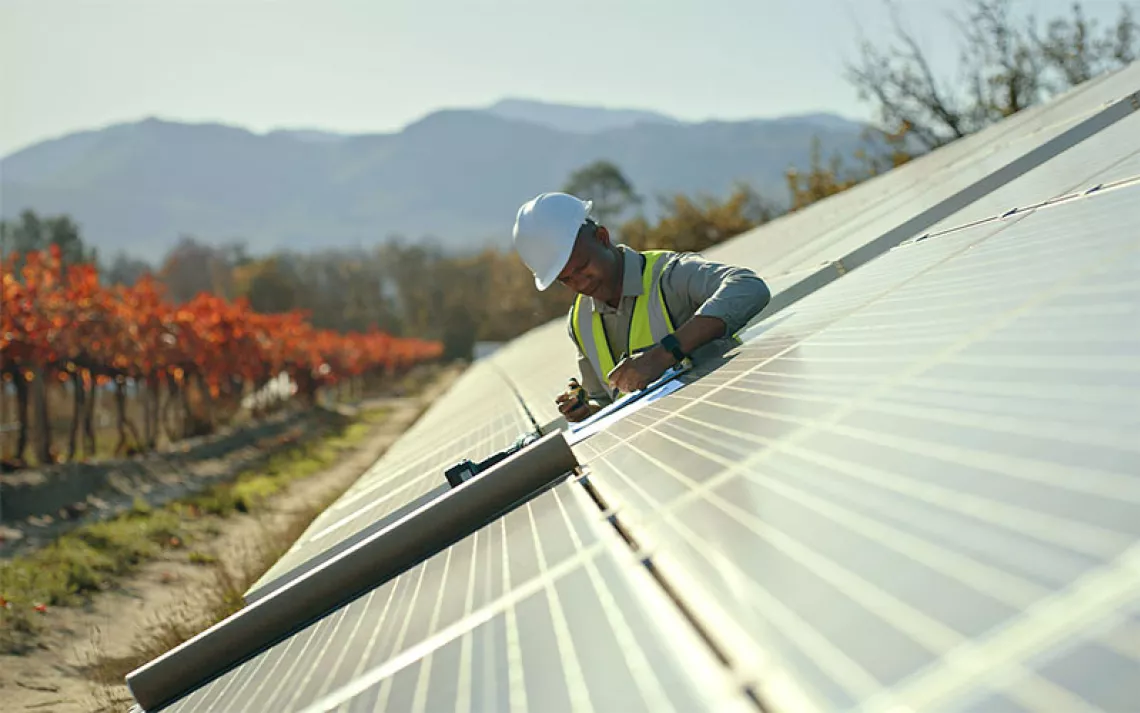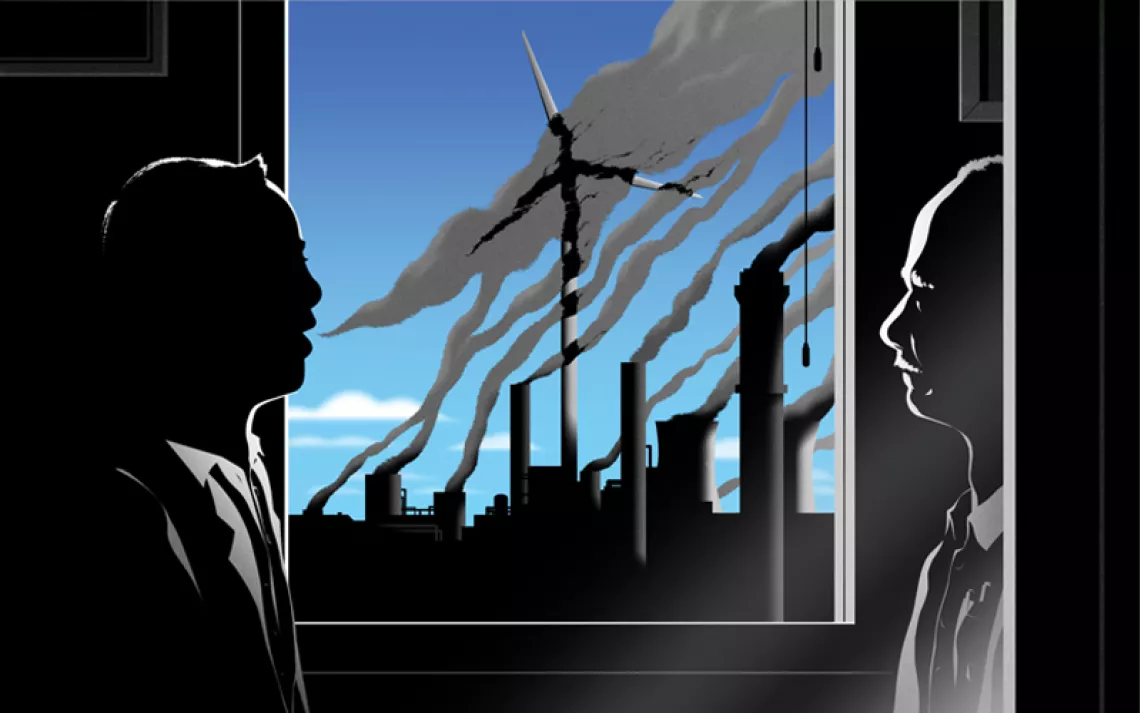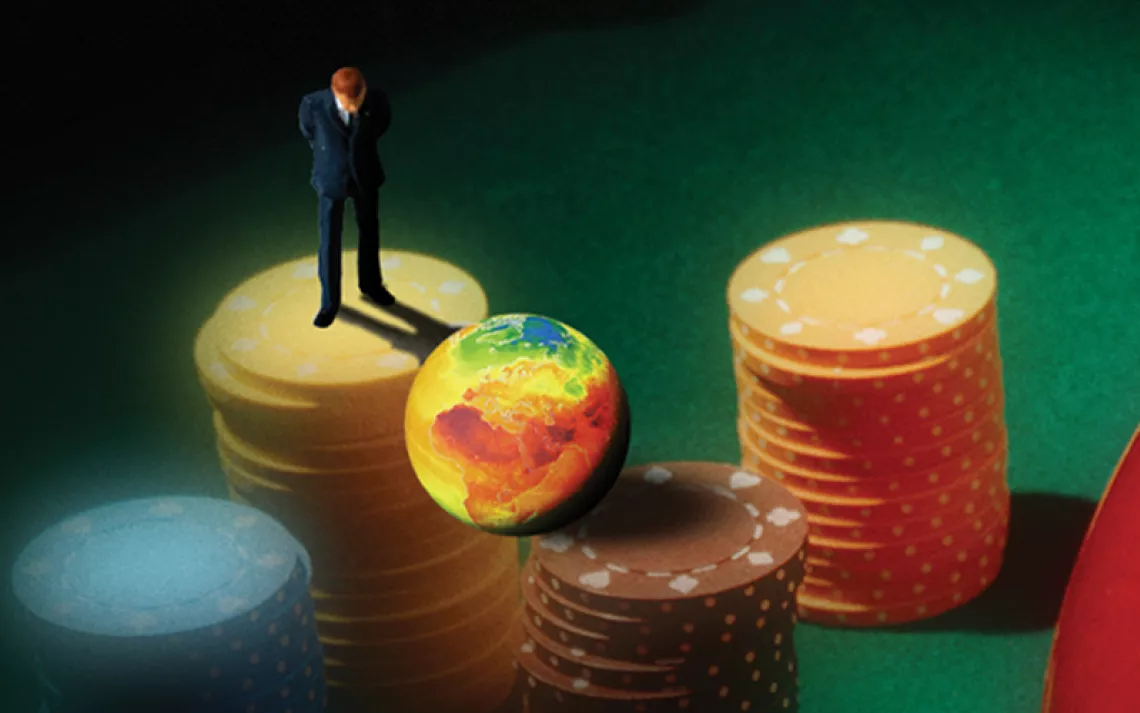Why Are Fossil Fuel Ideologues Tilting at Windmills?
There's a conspiracy to take down wind and solar power hiding in plain sight
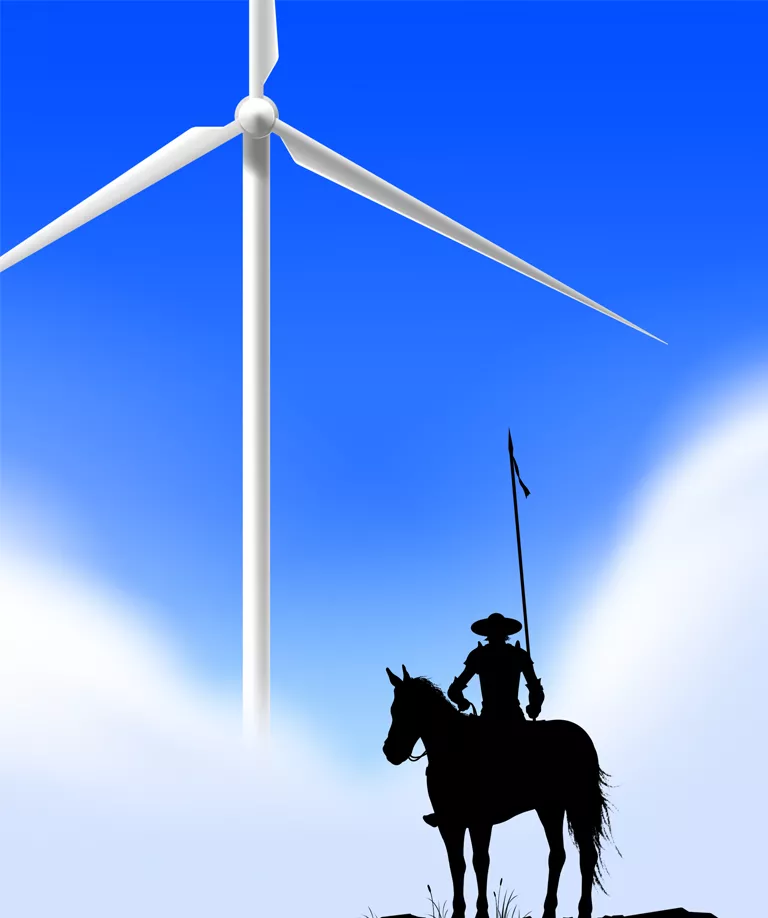
Illustration by Anson Chan
I have some good news and some bad news.
The good news is that the clean energy transition is finally shifting into high gear. Spurred by the urgency of rising temperatures and stimulated by the Inflation Reduction Act, US renewable energy developers are on a tear. Wind and solar are the leading growth sectors for electricity generation, and in the next two years, utility-scale solar capacity is expected to double. Today, renewables are a larger share of the US energy mix than coal and nuclear.
The bad news is that the acceleration of renewables is deepening tensions within the environmental movement about how and where to build clean energy. It's been more than a decade since the construction of massive solar plants in the Mojave Desert sparked a battle between clean energy developers and conservationists, and the strains have only increased since then. At one end of the debate are land and wildlife preservationists who believe that wild places shouldn't be sacrificed to meet the needs of a high-energy society. At the other end are self-described climate hawks who argue that the existential threat of climate chaos should trump other concerns.
Such intrafamily disputes would be difficult even in the best of times, and would require that people come to this important debate with grace, trust, and patience. But we don't live in the best of times. We live, rather, in an age of ugly political polarization and mistrust, amid a morass of social media misinformation and AI deepfakes. Fossil fuel ideologues know this all too well, and in recent years they've sowed disinformation in an attempt to twist public opinion against wind and solar projects. They've taken people's good-faith questions about renewable energy development and weaponized them—all in an attempt to prolong the fossil fuel era.
In her investigation "Against the Wind," reporter Rebecca Burns uncovers this conspiracy hiding in plain sight. She shows how a rogues' gallery of climate-science deniers, right-wing think tanks, and fossil-energy shills have used social media manipulation to intensify opposition to proposed wind and solar installations. In New York, notorious climate denier Marc Morano has playacted as a save-the-whales activist to halt offshore wind; in Ohio, a former coal industry attorney was spotted organizing against a Lake Erie wind farm. "For more than a decade," Burns reports, "climate deniers and fossil fuel interests have quietly cultivated ties with [local] activists, equipping them with talking points, legal muscle, model ordinances, and other tools to try to subvert renewable energy adoption."
Such tactics are little more than the same-old predatory delay, now in the form of concern trolling. But above all, the disinformation campaigns against renewables are quixotic—truly, tilting at windmills. The world is steadily moving toward decarbonization; the dissembling only delays the inevitable. If anything, the anti-renewable astroturf campaigns are a bit sad and pathetic. Climate-science deniers suddenly care about the whales? Really? Still, history shows that fools can do great damage. When every 10th of a degree of avoided warming helps preserve a livable planet, every mistruth peddled against wind and solar does some amount of harm.
Sunlight is the best disinfectant. The best way to guard against such mistruths is to reveal them for what they are: pure lies in the service of profit. If a former coal lobbyist is the messenger of an anti-wind screed, best to be skeptical about the message itself. If that social media image of a washed-up whale near a turbine seems too pat to be true, it probably is. So keep your head about you, and keep in mind that most of those hyped-up and overwrought arguments against renewable energy projects are often little more than an ill wind that blows nobody any good.
 The Magazine of The Sierra Club
The Magazine of The Sierra Club
